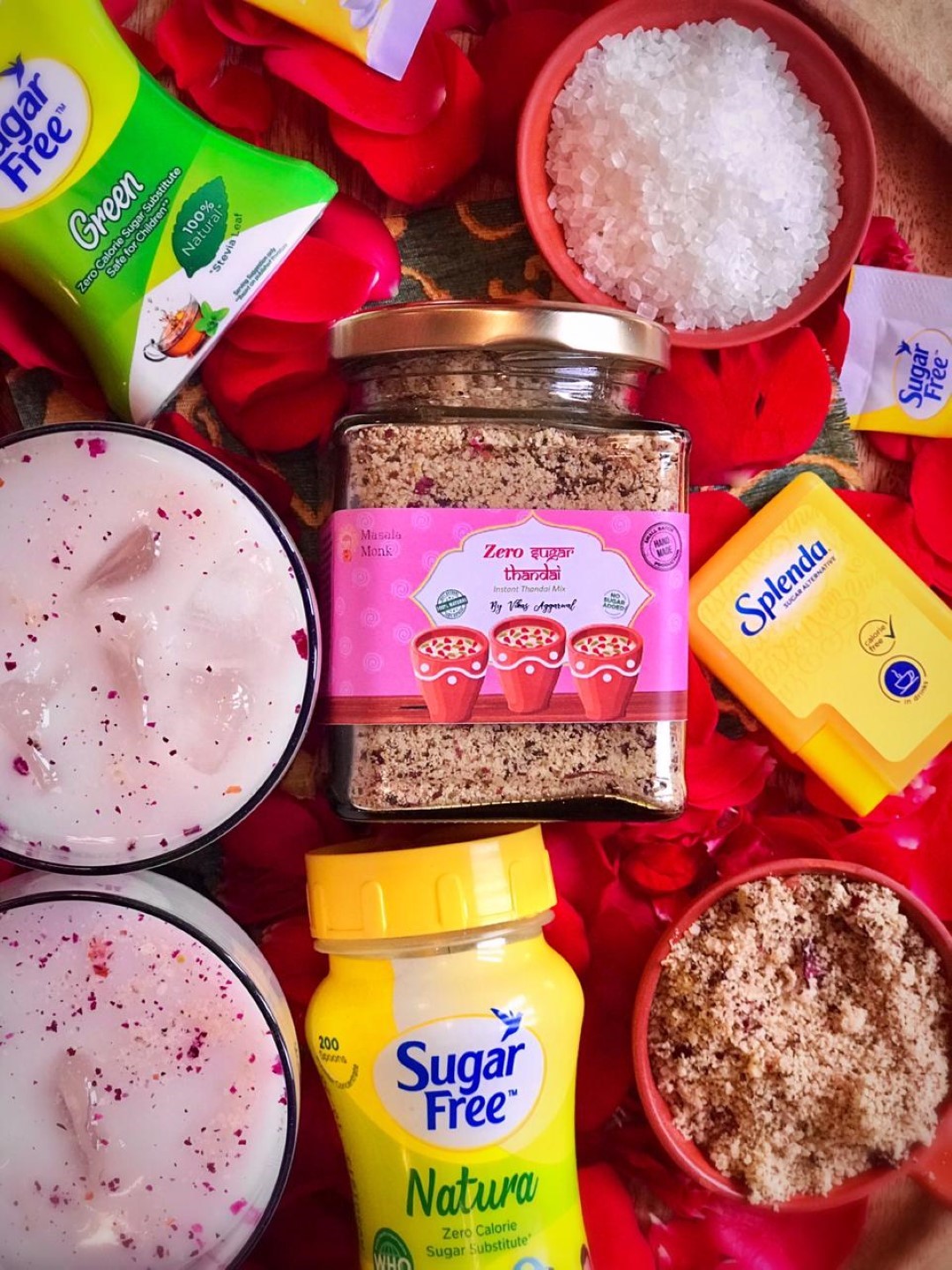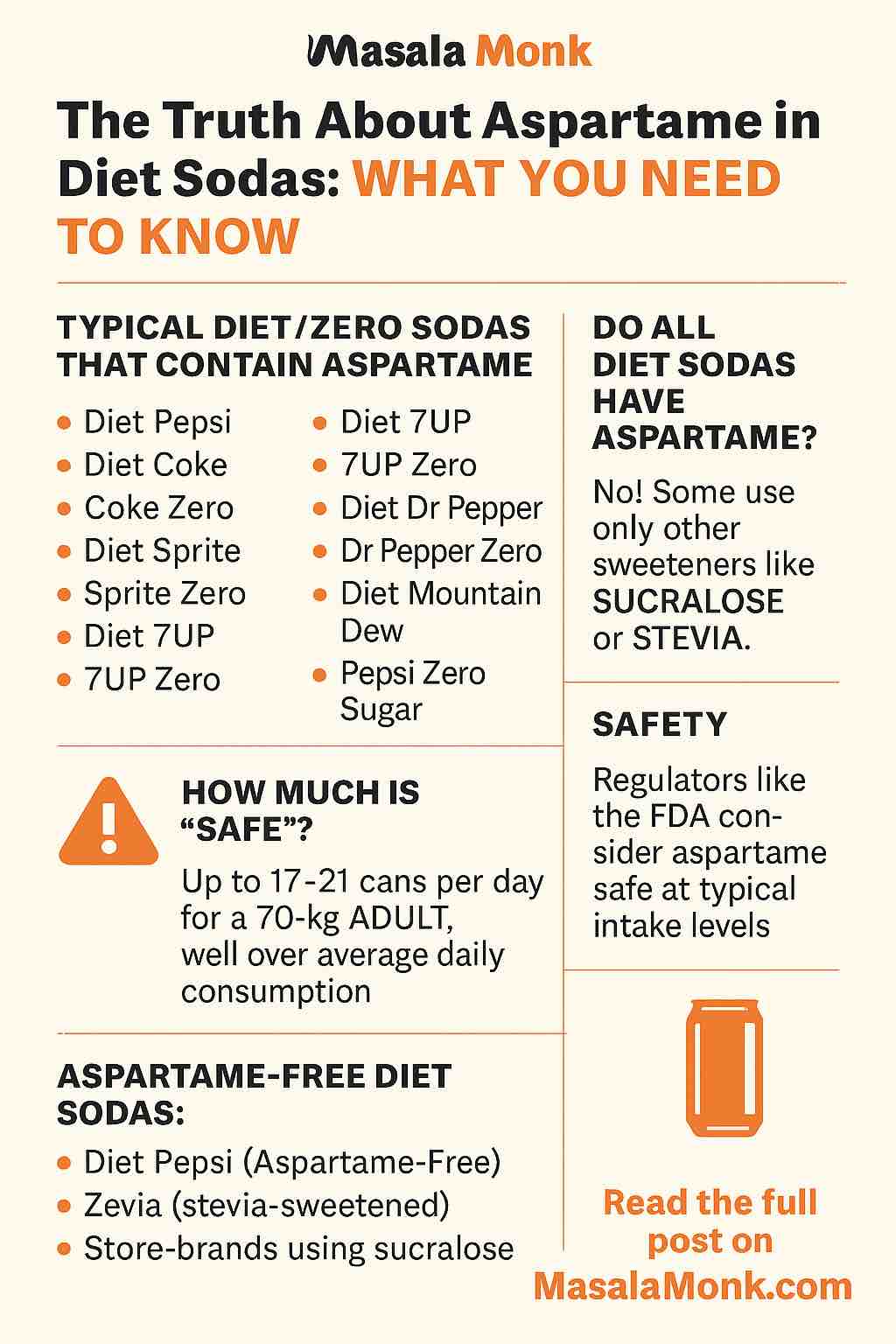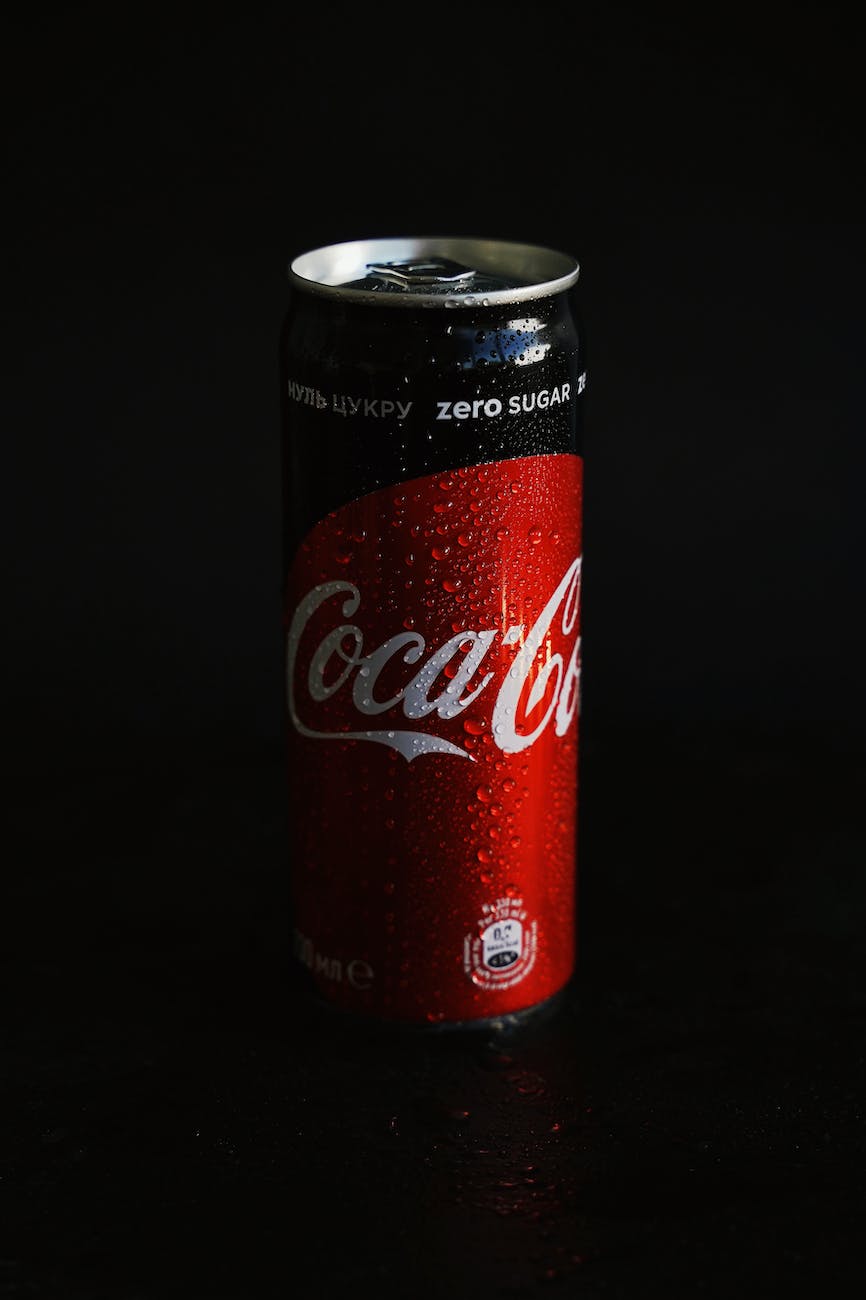
Introduction
Aspartame, often labeled as E951, has become a household name, yet it remains shrouded in mystery and debate. This artificial sweetener, celebrated for its zero-calorie profile, has been both hailed as a sugar substitute and criticized for potential health concerns. Found in a plethora of products, from your favorite soft drinks to the yogurt you have for breakfast, aspartame’s omnipresence is undeniable. But what’s the real story behind this sweetener? Why has it become such a staple in the food and beverage industry? And with so much conflicting information, how can consumers make informed decisions? Dive into our comprehensive guide as we unravel the world of aspartame, its journey from discovery to your dining table, and the controversies that have kept it in the limelight.
Aspartame in Popular Products
Soft Drinks: The carbonated beverage industry’s landscape has been significantly shaped by aspartame. With a growing consumer shift towards low-calorie and sugar-free beverages, aspartame has become the go-to sweetener for many iconic brands.
- Diet Pepsi: This popular drink once made headlines by removing aspartame in response to consumer concerns. However, the classic aspartame-sweetened version made a comeback due to public demand for its distinct taste. Today, consumers can choose between aspartame-free and regular versions.
- Diet Coke & Coke Zero: These Coca-Cola variants have been at the forefront of the aspartame debate. While Diet Coke has been a long-time user of aspartame, offering a unique taste different from regular Coke, Coke Zero aims to replicate the original Coca-Cola flavor without the sugar, using a blend of sweeteners including aspartame.
Fizzy Drinks Without Aspartame: Not all carbonated beverages have jumped on the aspartame bandwagon. Brands like Zevia have turned to stevia, a natural sweetener. For those keen on avoiding aspartame, it’s crucial to check labels, as many brands now offer both versions.
Yogurts: Beyond the effervescence of sodas, aspartame has found its way into the dairy aisle. Many diet or light yogurts, aiming to reduce sugar and calorie content, have turned to aspartame for that familiar sweetness. However, with a growing demand for natural ingredients, some brands are exploring alternatives.
Aspartame’s Other Appearances: From sugar-free gums labeled as “aspartame sweetener” products to certain medications, the reach of aspartame (or E951) is vast. Its versatility as a sweetener has made it a favorite among product developers, especially in the “diet” or “light” product categories.
Health Implications of Aspartame
Aspartame’s widespread use has inevitably led to questions about its safety and potential health implications. From diabetes concerns to discussions on platforms like Reddit, the health effects of aspartame remain a hot topic.
- Diabetes and Aspartame: There’s a common misconception that aspartame can cause diabetes. While aspartame offers a sugar-free alternative, making it a popular choice for diabetics, it’s essential to understand its effects on blood sugar levels. Current research suggests that aspartame doesn’t directly affect blood sugar, but its presence in sugary drinks might influence overall dietary choices.
- Reddit’s Perspective: The Reddit community has been a hub for discussions and personal anecdotes about aspartame. From users reporting headaches to others defending its safety, the platform offers a diverse range of opinions. It’s always crucial to differentiate between personal experiences and scientific consensus.
- IARC and Other Health Organizations: The International Agency for Research on Cancer (IARC) and other health bodies have conducted studies on aspartame. Their findings and recommendations provide a balanced view, helping consumers make informed decisions.
Aspartame vs. Other Sweeteners
In the world of artificial sweeteners, aspartame is just one player. How does it stack up against others like sucralose, stevia, or acesulfame k?
- Sucralose vs. Aspartame: While both are popular sugar substitutes, they have different chemical structures and taste profiles. Sucralose, often found under the brand name Splenda, is heat-stable, making it suitable for cooking, unlike aspartame.
- Stevia: A natural sweetener derived from the leaves of the Stevia plant. While it doesn’t have the aftertaste some associate with aspartame, it has its own unique flavor profile. It’s often lauded for being a natural alternative, but like all sweeteners, moderation is key.
- Acesulfame K: Often paired with other sweeteners to enhance sweetness, acesulfame potassium (or Ace K) is frequently found in soft drinks alongside aspartame. It’s heat-stable and has a slightly different sweetness curve.
Regulatory Stance on Aspartame
Given the debates surrounding aspartame, regulatory bodies worldwide have conducted evaluations to ensure its safety for consumption.
- FDA’s Take on Aspartame: The U.S. Food and Drug Administration has approved aspartame for consumption, deeming it safe when consumed within established daily intake limits. They’ve addressed various concerns, from cancer risks to neurological effects, in their comprehensive reviews.
- EFSA’s Evaluation: The European Food Safety Authority has also given aspartame the green light, confirming its safety for general consumption. Their extensive assessments provide clarity on various health concerns associated with aspartame.
- Decoding E951: For those who’ve come across “E951” on ingredient lists, it’s simply another name for aspartame. This code is part of the European food additive numbering system, helping standardize ingredient listings across products.
Aspartame Products in the Beverage Industry
The beverage industry, especially the diet soda segment, has been a significant consumer of aspartame. But how prevalent is it, and what are the alternatives?
- Coca-Cola’s Journey with Aspartame: Coca-Cola’s range, from Diet Coke to Coke Zero, has seen varying levels of aspartame usage. While Diet Coke has been a long-time user, Coke Zero combines it with other sweeteners to mimic the original taste. Recent trends, however, indicate a move towards natural sweeteners in some markets.
- Pepsi’s Aspartame Rollercoaster: Pepsi made headlines when it removed aspartame from Diet Pepsi, only to reintroduce it later due to consumer demand. Today, they offer both versions, catering to diverse preferences.
- Fizzy Drinks Without Aspartame: Brands like Zevia have opted for stevia, while others use cane sugar or erythritol. The market for aspartame-free fizzy drinks is growing, with consumers becoming more health-conscious.
Other Aspartame Products
Beyond beverages, aspartame has found its way into various food products, often unnoticed.
- Yogurts and Dairy: Many low-fat and sugar-free yogurts use aspartame to maintain sweetness without adding calories. However, with the rise of natural and organic trends, some brands are exploring alternatives.
- Chewing Gums and Candies: Aspartame is a common ingredient in sugar-free gums and candies. Brands like Trident might contain aspartame, so it’s essential to check labels if you’re looking to avoid it.
- Desserts and Baked Goods: Sugar-free or diet desserts, especially those labeled for diabetics, might contain aspartame as a sweetening agent. It provides sweetness without the associated calories from sugar.
The Controversies Surrounding Aspartame
No discussion about aspartame is complete without addressing the controversies that have surrounded it for years.
- Health Concerns and Debates: From potential links to cancer to neurological concerns, aspartame has been at the center of numerous health debates. Platforms like Reddit have countless threads discussing its pros and cons.
- Natural vs. Artificial Debate: With the rise of clean eating and natural food trends, aspartame, being a synthetic sweetener, often faces criticism. This has led to discussions comparing it to natural sweeteners like stevia.
- Regulatory Flip-Flops: Over the years, regulatory bodies have revised their stance on aspartame multiple times, leading to public confusion. While the FDA and EFSA have deemed it safe, the journey to this conclusion has been tumultuous.
Frequently Asked Questions: Aspartame Unraveled
1. What is Aspartame and why is it used as a sweetener?
Aspartame, often recognized by its European code E951, is a low-calorie artificial sweetener. It’s used in various food and beverage products because it provides a sweet taste similar to sugar, without the added calories or effects on blood sugar levels.
2. How does Aspartame compare to other sweeteners like Sucralose or Stevia?
Aspartame, Sucralose, and Stevia are all sweeteners, but they differ in origin and taste profile. While Aspartame is a synthetic sweetener, Stevia is derived naturally from the Stevia plant. Sucralose, on the other hand, is a chlorinated derivative of sucrose. Each has its unique taste and application in foods and beverages.
3. Is Aspartame present in popular beverages like Diet Coke and Pepsi Max?
Yes, Aspartame is a primary sweetener in many diet sodas, including Diet Coke and Pepsi Max. However, formulations can vary by region, so it’s always a good idea to check the product label.
4. Are there any fizzy drinks that don’t contain Aspartame?
Certainly! There are several fizzy drinks on the market that use alternative sweeteners or natural sugars. Brands like Zevia use Stevia, while others might opt for cane sugar or erythritol.
5. What’s the stance of health organizations like IARC on Aspartame?
The International Agency for Research on Cancer (IARC) has evaluated aspartame and, based on current evidence, has not classified it as a carcinogen. However, it’s always recommended to stay updated with their latest findings.
6. Can I find Aspartame in everyday foods like yogurt?
Yes, Aspartame is often used in low-fat or sugar-free yogurts to provide sweetness without added calories. Always check the ingredient list if you’re looking to avoid or consume products with aspartame.
7. How does Aspartame affect blood sugar levels and diabetes?
Aspartame does not have a glycemic index and does not affect blood sugar levels, making it a popular choice for diabetics. However, it’s essential to consider the overall dietary choices and consult with a healthcare professional.
8. Is there a difference between Aspartame and Acesulfame K?
Yes, while both are artificial sweeteners, they have different chemical structures and taste profiles. Acesulfame K, often shortened to Ace K, is frequently combined with other sweeteners in products to enhance sweetness.
9. I’ve heard about Aspartame controversies on Reddit. What are they about?
Reddit hosts a myriad of discussions on aspartame, ranging from potential health concerns to personal experiences. Some users report sensitivity to aspartame, while others defend its safety. It’s a platform that showcases diverse opinions.
10. What does the FDA say about Aspartame?
The U.S. Food and Drug Administration (FDA) has approved aspartame for consumption and deems it safe when consumed within the established daily intake limits. They’ve addressed various concerns in their comprehensive reviews.
11. What products commonly contain Aspartame?
Aspartame is found in a variety of products, from diet sodas and sugar-free gums to certain desserts and baked goods. It’s also present in some sugar-free syrups and sweetener packets.
12. How is Aspartame made?
Aspartame is synthesized from two amino acids, aspartic acid and phenylalanine, using a chemical process. Some reports suggest it’s produced using bacteria like E. coli, but these bacteria are merely used as production vessels.
13. Are there any drinks without Aspartame?
Yes, many drinks, especially in the organic or natural segment, do not contain aspartame. They might use alternative sweeteners or natural sugars. Always check the ingredient list to be sure.
14. How does Stevia differ from Aspartame?
Stevia is a natural sweetener derived from the Stevia plant’s leaves, while aspartame is a synthetic compound. They have different taste profiles and applications in food and beverages.
15. Is Sucralose a better alternative to Aspartame?
Both Sucralose and Aspartame are artificial sweeteners, but they have different properties and taste profiles. Whether one is “better” depends on individual preferences and specific applications.
16. Does Pepsi Max contain more Aspartame than Diet Pepsi?
Both Pepsi Max and Diet Pepsi contain aspartame, but the exact amounts and formulations can vary. Pepsi Max is designed to have a bolder flavor, which might influence its sweetener composition.
17. Are there any health concerns associated with Aspartame?
Over the years, aspartame has been linked to various health concerns, from headaches to more severe claims. However, most reputable health organizations have deemed it safe for consumption within recommended limits.
18. What is the European Food Safety Authority’s (EFSA) view on Aspartame?
The EFSA has conducted extensive assessments on aspartame and confirmed its safety for general consumption. They provide clarity on various health concerns associated with aspartame.
19. Can I use Aspartame while on a Keto diet?
Aspartame does not contain carbohydrates, making it keto-friendly. However, it’s essential to consider the overall dietary choices and ensure other ingredients in aspartame-containing products align with keto guidelines.
20. How does Aspartame’s sweetness compare to regular sugar?
Aspartame is significantly sweeter than regular sugar (sucrose). It’s estimated to be about 200 times sweeter, which means a small amount can provide a high level of sweetness without the calories.
Conclusion: Aspartame Unveiled
Aspartame, known to many by its European code E951, has been a cornerstone in the world of artificial sweeteners. Its widespread use in beverages like Diet Coke, Pepsi Max, and even in everyday foods like yogurts, has made it a household name. However, its journey hasn’t been without debate. From health concerns discussed on platforms like Reddit to its comparison with other sweeteners such as stevia and sucralose, aspartame has been both praised and criticized.
It’s essential to remember that while aspartame offers a calorie-free alternative to sugar, like all things, moderation is key. The varying stances of regulatory bodies like the FDA and EFSA, combined with personal anecdotes, highlight the importance of making informed decisions. We encourage all our readers to continue their research, consult with health professionals, and make choices that align with their personal health goals.
Engage with Us!
Your voice matters! We invite you to share your experiences and thoughts on aspartame. Has this guide changed your perspective? Do you have personal stories or insights that could benefit others?
Poll: After diving deep into the world of aspartame with us, we’re curious – will you continue using products containing this sweetener? Cast your vote!
Lastly, if you found this guide enlightening and wish to stay updated on similar topics, consider signing up for our newsletter. Let’s continue the journey of discovery and understanding together.














